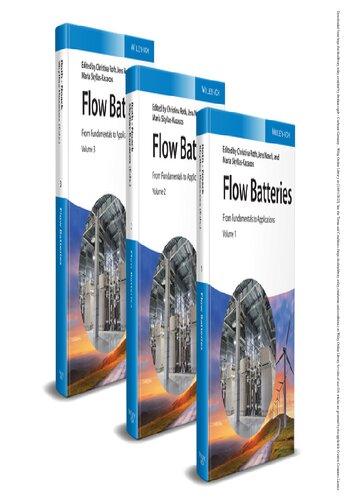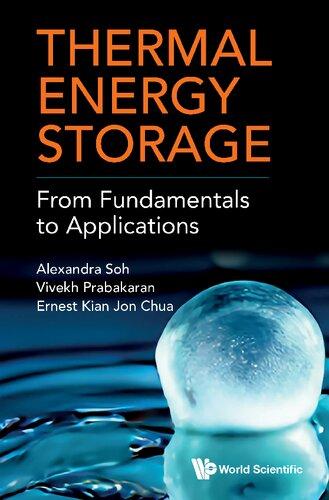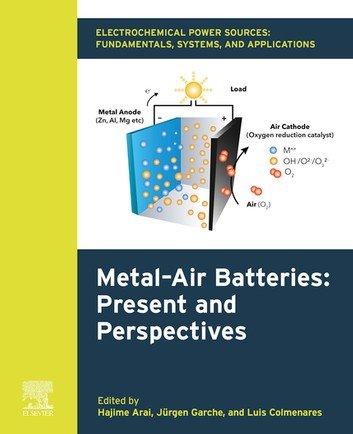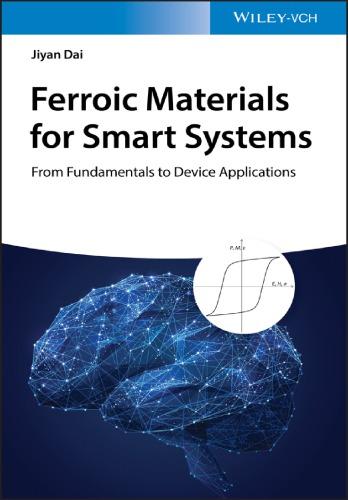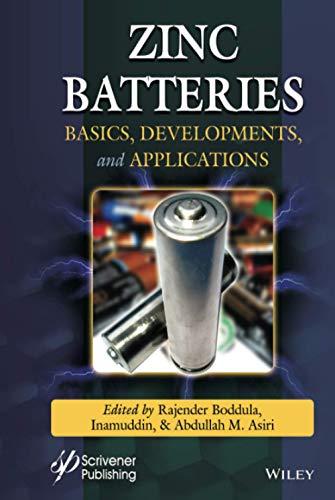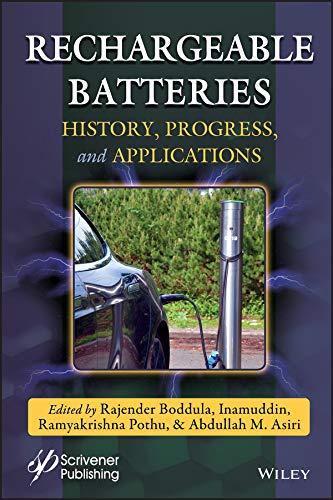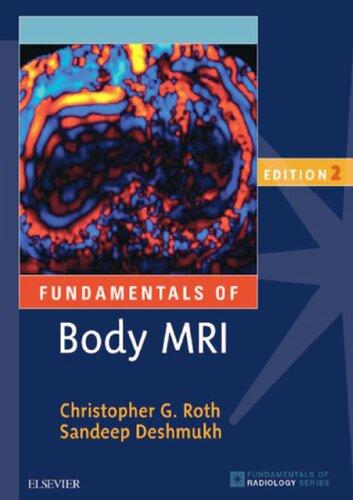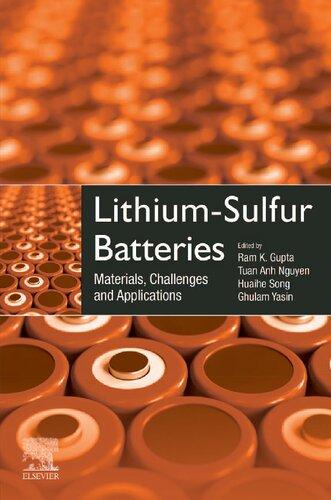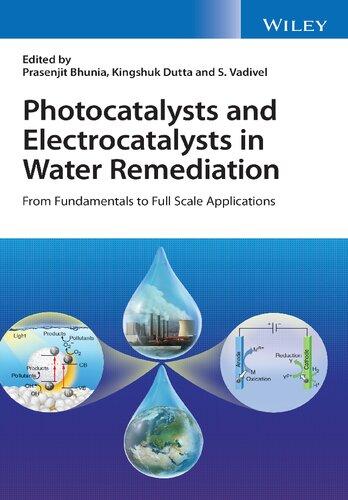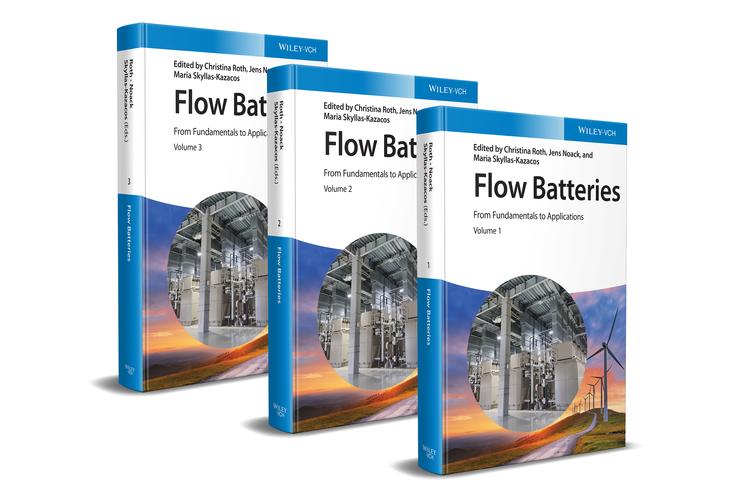FlowBatteries
FromFundamentalstoApplications
EditedbyChristinaRoth,JensNoack,and MariaSkyllas-Kazacos
Volume3
Editors
Prof.Dr.ChristinaRoth UniversityBayreuth ElectrochemicalProcessEngineering Universitätsstraße30 95448Bayreuth Germany
Adj.Assoc.Prof.(UNSW)Dr.JensNoack Fraunhofer-InstituteforChemical Technology AppliedElectrochemistry Joseph-von-Fraunhofer-Str.7 76327Pfinztal Germany
UniversityofNewSouthWales MechanicalandManufacturing Engineering 2052Sydney Australia
Prof.Dr.MariaSkyllas-Kazacos UniversityofNewSouthWales SchoolofChemicalEngineering 2052Sydney Australia
CoverImages:CourtesyofJensNoack; ©Mimadeo/Shutterstock
Allbookspublishedby WILEY-VCH arecarefully produced.Nevertheless,authors,editors,and publisherdonotwarranttheinformation containedinthesebooks,includingthisbook, tobefreeoferrors.Readersareadvisedtokeep inmindthatstatements,data,illustrations, proceduraldetailsorotheritemsmay inadvertentlybeinaccurate.
LibraryofCongressCardNo.: appliedfor
BritishLibraryCataloguing-in-PublicationData Acataloguerecordforthisbookisavailable fromtheBritishLibrary.
Bibliographicinformationpublishedby theDeutscheNationalbibliothek TheDeutscheNationalbibliothekliststhis publicationintheDeutscheNationalbibliografie;detailedbibliographicdataareavailable ontheInternetat <http://dnb.d-nb.de>
©2023WILEY-VCHGmbH,Boschstraße12, 69469Weinheim,Germany
Allrightsreserved(includingthoseof translationintootherlanguages).Nopartof thisbookmaybereproducedinanyform–by photoprinting,microfilm,oranyothermeans–nortransmittedortranslatedintoamachine languagewithoutwrittenpermissionfromthe publishers.Registerednames,trademarks,etc. usedinthisbook,evenwhennotspecifically markedassuch,arenottobeconsidered unprotectedbylaw.
PrintISBN: 978-3-527-35171-8
ePDFISBN: 978-3-527-83278-1
ePubISBN: 978-3-527-83277-4
oBookISBN: 978-3-527-83276-7
Typesetting Straive,Chennai,India
Editors
Prof.Dr.ChristinaRoth UniversityBayreuth ElectrochemicalProcessEngineering Universitätsstraße30 95448Bayreuth Germany
Adj.Assoc.Prof.(UNSW)Dr.JensNoack Fraunhofer-InstituteforChemical Technology AppliedElectrochemistry Joseph-von-Fraunhofer-Str.7 76327Pfinztal Germany
UniversityofNewSouthWales MechanicalandManufacturing Engineering 2052Sydney Australia
Prof.Dr.MariaSkyllas-Kazacos UniversityofNewSouthWales SchoolofChemicalEngineering 2052Sydney Australia
CoverImages:CourtesyofJensNoack; ©Mimadeo/Shutterstock
Allbookspublishedby WILEY-VCH arecarefully produced.Nevertheless,authors,editors,and publisherdonotwarranttheinformation containedinthesebooks,includingthisbook, tobefreeoferrors.Readersareadvisedtokeep inmindthatstatements,data,illustrations, proceduraldetailsorotheritemsmay inadvertentlybeinaccurate.
LibraryofCongressCardNo.: appliedfor
BritishLibraryCataloguing-in-PublicationData Acataloguerecordforthisbookisavailable fromtheBritishLibrary.
Bibliographicinformationpublishedby theDeutscheNationalbibliothek TheDeutscheNationalbibliothekliststhis publicationintheDeutscheNationalbibliografie;detailedbibliographicdataareavailable ontheInternetat <http://dnb.d-nb.de>
©2023WILEY-VCHGmbH,Boschstraße12, 69469Weinheim,Germany
Allrightsreserved(includingthoseof translationintootherlanguages).Nopartof thisbookmaybereproducedinanyform–by photoprinting,microfilm,oranyothermeans–nortransmittedortranslatedintoamachine languagewithoutwrittenpermissionfromthe publishers.Registerednames,trademarks,etc. usedinthisbook,evenwhennotspecifically markedassuch,arenottobeconsidered unprotectedbylaw.
PrintISBN: 978-3-527-35172-5
ePDFISBN: 978-3-527-83278-1
ePubISBN: 978-3-527-83277-4
oBookISBN: 978-3-527-83276-7
Typesetting Straive,Chennai,India
Editors
Prof.Dr.ChristinaRoth UniversityBayreuth ElectrochemicalProcessEngineering Universitätsstraße30 95448Bayreuth Germany
Adj.Assoc.Prof.(UNSW)Dr.JensNoack Fraunhofer-InstituteforChemical Technology AppliedElectrochemistry Joseph-von-Fraunhofer-Str.7 76327Pfinztal Germany
UniversityofNewSouthWales MechanicalandManufacturing Engineering 2052Sydney Australia
Prof.Dr.MariaSkyllas-Kazacos UniversityofNewSouthWales SchoolofChemicalEngineering 2052Sydney Australia
CoverImages:CourtesyofJensNoack; ©Mimadeo/Shutterstock
Allbookspublishedby WILEY-VCH arecarefully produced.Nevertheless,authors,editors,and publisherdonotwarranttheinformation containedinthesebooks,includingthisbook, tobefreeoferrors.Readersareadvisedtokeep inmindthatstatements,data,illustrations, proceduraldetailsorotheritemsmay inadvertentlybeinaccurate.
LibraryofCongressCardNo.: appliedfor
BritishLibraryCataloguing-in-PublicationData Acataloguerecordforthisbookisavailable fromtheBritishLibrary.
Bibliographicinformationpublishedby theDeutscheNationalbibliothek TheDeutscheNationalbibliothekliststhis publicationintheDeutscheNationalbibliografie;detailedbibliographicdataareavailable ontheInternetat <http://dnb.d-nb.de>
©2023WILEY-VCHGmbH,Boschstraße12, 69469Weinheim,Germany
Allrightsreserved(includingthoseof translationintootherlanguages).Nopartof thisbookmaybereproducedinanyform–by photoprinting,microfilm,oranyothermeans–nortransmittedortranslatedintoamachine languagewithoutwrittenpermissionfromthe publishers.Registerednames,trademarks,etc. usedinthisbook,evenwhennotspecifically markedassuch,arenottobeconsidered unprotectedbylaw.
PrintISBN: 978-3-527-35201-2
ePDFISBN: 978-3-527-83278-1
ePubISBN: 978-3-527-83277-4
oBookISBN: 978-3-527-83276-7
Typesetting Straive,Chennai,India
Contents
Volume1
Foreword xxi
Preface xxiii
AbouttheEditors xxvii
PartIFundamentals 1
1TheNeedforStationaryEnergyStorage 3
AnthonyPrice
1.1PowerSystems 3
1.1.1TheRoleofElectricityinEnergySupply 3
1.1.2TheDevelopmentofDCandACPowerSystems 4
1.1.3TheEarlyUseofEnergyStorageonPowerSystems 4
1.1.4CentralisedandDistributedGeneration 4
1.1.5PowerSystemInfrastructure 5
1.1.6OtherTypesofElectricityGenerationandSystemControl 7
1.2TheNeedforElectricityStorage 8
1.2.1OperationofaModernPowerNetwork–TheRequirementfor OperationalStability 8
1.2.2RequirementsforStorageandtheUseofAlternativeTechnologies,such asDemand-SideResponse,Interconnectors,andFlexibleGeneration 8
1.2.3OptimisationofPowerNetworksforTechnicalPerformance,Economic Efficiency,andSustainability–TheEnergyTrilemma 10
1.3ChangesinElectricityNetworkOperation:InterconnectedSystems, Microgrids,andStandaloneSystems 12
1.3.1TheGrowthinRenewableEnergyGeneration 12
1.3.2TheOverlapBetweenStationaryStorageandTransportableandMobile Applications 12
1.4TheParametersforStorage:ShortTerm,SmallScaletoLongTerm,Long Duration,andLarge-ScaleStorage 14
1.4.1StationaryStorageApplications 14
1.5TheNeedforLonger-DurationEnergyStorage 16
1.5.1MarketEstimates 17
1.6EnergyStorageTypes 18
1.6.1Pumped-HydroEnergyStorage 18
1.6.2AlternativestoPumped-HydroStorage 19
1.6.3CompressedAirEnergyStorage 19
1.6.4TheHydrogenCycle 20
1.7BatteryEnergyStorageTechnologies 20
1.7.1FlowBatteries 20
1.7.2FlowBatteryAncillarySystems 21
1.7.2.1AdvantagesandBenefits 22
1.8TheDeploymentofFlowBatteryandEnergyStorage 22
1.9AFutureOutlook 24
References 26
2HistoryofFlowBatteries 29
JensNoack,MariaSkyllas-Kazacos,LarryThaller,GerdTomazic, BjornJonshagen,andPatrickMorrissey
2.1EarlyDevelopments(1884–1963) 29
2.2Fe/CrFBs(1974–mid-2010s) 32
2.3Zinc/BromineFBs(1977–mid2010s) 34
2.41977–1981 35
2.5Vanadium-BasedFlowBatteries(1980s–2010) 37
2.6RegenesysPolysulphide/BromideFlowBattery(1984–Early2000s) 42
2.7OtherFlow-BatteryChemistries2000–2020 44
2.8OrganicFlowBatteries 46
2.9AdvancedFlow-BatteryConcepts 47
2.10Perspective 47 References 48
3GeneralElectrochemicalFundamentalsofBatteries 53
RudolfHolze
3.1Introduction 53
3.2Thermodynamics 55
3.3Kinetics 61
3.4PracticalAspectsandConsequences 66 Acknowledgments 66 References 67
4GeneralAspectsandFundamentalsofFlowBatteries 69
LuisF.Arenas,FrankC.Walsh,andCarlosPoncedeLeón
4.1Introduction 69
4.2TheFlowBattery 71
4.3MainComponentsofaFBEnergyStorageSystem 75
4.4AdvantagesandEnvironmentalBenefits 77
4.5TypesofFB 79
4.6FieldsofApplication 84
4.7IdealCharacteristicsofaFB 85
4.8EngineeringAspectsofFBs 86
4.9FluidFlowAspectsofFBs 87
4.10TypicalFiguresofMerit 90
4.11Conclusions 92 Acknowledgments 93 Abbreviations 94
ListofSymbolsandSubscripts 94 GreekLetters 95 References 95
5Redox-mediatedProcesses 99
DanickReynard,MahdiMoghaddam,CedrikWiberg,SilverSepp, PekkaPeljo,andHubertH.Girault
5.1FundamentalTheoryonRedox-mediatedProcesses 99
5.2Redox-mediatedProcesses:VariousApplicationsforFlowBatteries 101
5.2.1Dual-flowCircuitFlowBattery 101
5.2.2SolidBoosters 106
5.2.2.1ThermodynamicsofSolidBoosters:Equilibrium 109
5.2.2.2KineticsofSolidBoosters 113
5.2.2.3SystemDesign 113
5.3Conclusion 115 References 116
6MembranesforFlowBatteries 121
GiovanniCrivellaro,ChuanyuSun,GioelePagot,EnricoNegro,KetiVezzù, FrancescaLorandi,andVitoDiNoto
6.1Introduction 121
6.2MembraneCharacteristics 123
6.2.1Ion-ExchangeCapacity(IEC) 124
6.2.2WaterUptake(WU),SwellingRatio(SR),andWaterTransport 125
6.2.3IonicConductivity(�� ) 126
6.2.4PermselectivityofChemicalSpecies 128
6.2.5ChemicalStability 129
6.2.6ThermalandMechanicalStability 130
6.2.7CostoftheIEMs 130
6.3ClassificationofMembranes 131
6.3.1Cation-ExchangeMembranes(CEMs) 132
6.3.1.1PerfluorinatedMembranes 132
6.3.1.2Non-perfluorinatedMembranes 134
6.3.2Anion-ExchangeMembranes(AEMs) 137
6.3.3AmphotericIon-ExchangeMembranes(AIEMs) 139
6.3.4HybridMembranes(HMs) 140
6.3.4.1HybridInorganic–OrganicIEMs 141
6.3.4.2OrganicPolymerBlendsasIEMs 142
6.3.5PorousMembranes 143
6.4Conclusions 144 References 146
7StandardsforFlowBatteries 155 JensNoack
7.1Introduction 155
7.2ADefinitionofFlowBatteries 156
7.3InternationalStandardsforFlowBatteries 159
7.3.1StandardsoftheInternationalElectrotechnicalCommission(IEC) 160
7.3.2StandardsoftheInstituteofElectricalandElectronicsEngineers 166
7.4OtherNationalandInternationalStandards,aswellasOther Documents 168
7.5ChineseNationalStandards 171
7.6Conclusions 174 Abbreviations 174 References 174
8SafetyConsiderationsoftheVanadiumFlowBattery 175 AdamH.Whitehead
8.1RegulatoryFramework 175
8.2ThermalHazards 177
8.3ChemicalHazards 178
8.4ElectricalHazards 180
8.5OtherConsiderations 187
8.6Summary&Outlook 187 References 188
9AStudentWorkshopinSustainableEnergyTechnology:The PrinciplesandPracticeofaRechargeableFlowBattery 193 C.T.JohnLow,CarlosPoncedeLeón,RichardG.A.Wills,andFrankC.Walsh
9.1Introduction 193
9.2LaboratoryExperiment 193
9.2.1Chemicals 194
9.2.2MaterialsforConstruction 194
9.3ResultsandDiscussion 195
9.3.1PreparationoftheFlowBattery 195
9.3.2ElectrochemicalReactionsinaSolubleLead–AcidFlowBattery 196
9.3.3EffectofCurrentDensityonCellVoltage 198
9.4AssessmentofHazards 199
9.5TeachingAssessmentandLearningOutcomes 199
9.6Conclusions 200
SupplementaryMaterials 200
Acknowledgments 200
Appendix:SupplementaryInformationforStudents 200
9.AChemicalsandMaterialsfortheSolubleLeadFlowBattery 200
9.BExperimentalProcedure 201
9.CTypesofFlowBattery 202
9.DComponentsofCellVoltage 202
9.ECharacteristicsofaFlowBattery 204
9.FTheEfficiencyofaFlowBattery 205
9.GNomenclature 205
9.HSupplementaryMaterialsfortheInstructor 206 References 209
PartIICharacterizationofFlowBatteriesand Materials 213
10CharacterizationMethodsinFlowBatteries:AGeneral Overview 215
ChristinaRothandMarcusGebhard
10.1GeneralOverview 215
10.1.1PhysicochemicalMethodsinGeneral 215
10.1.2CharacterizationTechniquesforRedox-FlowBatteries 218
10.1.2.1PhysicochemicalCharacterization 218
10.1.2.2ElectrochemicalCharacterization 221
10.1.2.3GeneralObservations 224
10.1.3FurtherOutlineofPartII 224 Acknowledgments 225 References 225
11ElectrochemicalMethods 229
JonathanSchneider,TimTichter,andChristinaRoth
11.1FundamentalDefinitions 229
11.2CyclicVoltammetry 231
11.2.1MeasuringCyclicVoltammetry 231
11.2.2InterpretingCVandLSVatPlanarElectrodes–TheRandles–Šev ˇ cík Relations 233
11.2.3StrategiesforSimulatingCyclicVoltammetry 235
11.2.4TheDiffusionDomainApproximationApproachforFelt Electrodes 237
11.2.5TheReal-SpaceSimulationApproach 240
11.2.6RemarksonCyclicVoltammetry 242
11.3ElectrochemicalImpedanceSpectroscopy 245
11.3.1PrinciplesandAdvantagesofElectrochemicalImpedance Spectroscopy 245
11.3.2InterpretingElectrochemicalImpedanceSpectroscopy 246
11.3.3ImpedanceofMacrohomogeneousPorousElectrodes–ThePaasch Model 248
11.3.4TheNormalizationMethod 248
11.3.5TheDistributionofRelaxationTimes(DRT)Analysis 249
11.3.6Characteristicsofa“GoodImpedance”–TheKramers–Kronig Relations 251
11.3.7AdvancedElectroanalyticalTechniques 252
11.3.7.1HydrodynamicVoltammetry–TheRotatingRing-DiscElectrode (RRDE) 253
11.3.7.2AlternatingCurrentCyclicVoltammetry(ACCV) 254 References 255
12RadiographyandTomography 263 RoswithaZeis
12.1WorkingPrinciple 263
12.1.1MorphologyofElectrodeMaterials 263
12.1.2VisualizingtheFlowandElectrolyteDistributioninthePorous Electrode 267
12.1.2.1InjectionofElectrolyteIntotheCarbonElectrode(NoPotential Control) 268
12.1.2.2ElectrolyteFlowintheCarbonElectrode(CellPotentialApplied) 274
12.2Outlook 276 References 276
13CharacterizationofCarbonMaterials 281 MichaelBron,JuliaMelke,andMatthiasSteimecke
13.1Introduction 281
13.2StructureofCarbonMaterials 283
13.2.1RamanSpectroscopy 283
13.3X-rayPowderDiffraction(XRD) 286
13.4SurfaceChemistryofCarbonMaterials 288
13.5FunctionalizationofCarbons 288
13.5.1ThermalMethods 290
13.5.1.1TPD 291
13.5.1.2TPR/TPO 292
13.5.1.3TG/TGA 292
13.6X-rayPhotoelectronSpectroscopy(XPS) 293
13.7InfraredSpectroscopy 296
13.8ImagingTechniques 297
13.9SurfaceAreaDeterminationandPorosity 298
13.10ConclusionandPerspectives 299
References 300
14CharacterizationofMembranesforFlowBatteries 307
JochenKerres,NicoMans,andHenningKrieg
14.1Introduction 307
14.2ExsituCharacterizationMethodsforMembranes 307
14.2.1Ion-ExchangeCapacityofIonomerMembranes 307
14.2.2IonConductivityofIonogenicGroupsinMembranes 310
14.2.3IonPermeabilityoftheIon-ExchangeMembranes 311
14.2.4MembraneWeightLoss 311
14.2.5MolecularWeight(Degradation)ofIonomersandIonomer Membranes 313
14.2.6DeterminationoftheThermalStabilityoftheMembranes 314
14.2.7SpectroscopicalMembraneCharacterization 315
14.2.8DeterminationofMechanicalMembraneProperties 317
14.2.9MicroscopicalMembraneCharacterization 317
14.2.10WaterTransferBehavior 318
14.3InsituCharacterizationMethodsforMembranes 319
14.3.1Charge/DischargeCycles 319
14.3.1.1Current,Voltage,andEnergyEfficiency 320
14.3.1.2DischargeCapacityandCapacityRetention 324
14.3.2Open-CircuitVoltage 326
14.3.3ElectrochemicalImpedanceSpectroscopy(EIS) 327
14.3.4InsituMembranePermeabilityEstimation 328
14.4Summary 329 References 329
PartIIIModelingandSimulation 333
15QuantumMechanicalModelingofFlowBattery Materials 335 PiotrdeSilva
15.1Introduction 335
15.2FundamentalConceptsofMolecularQuantumMechanics 337
15.3DensityFunctionalTheory 339
15.4ComputationalElectrochemistryattheAtomisticScale 343
15.5ApplicationstoFBMaterials 348 References 351
16MesoscaleModelingandSimulationforFlowBatteries 355 JiaYuandAlejandroA.Franco
16.1MesoscaleModelingIntroduction 355
16.2MesoscaleModelingofElectrochemicalKinetics 356
16.2.1ElectronTransferProcess 356
16.3MesoscaleModelingofElectrifiedInterfaces:MonteCarlo Methods 360
16.3.1KineticMonteCarloMethod 360
16.3.1.1MethodologyofKineticMonteCarloMethod 360
16.3.1.2KMCApplicationsinFBandPorousElectrodeSystems 361
16.3.2GrandCanonicalMonteCarloMethod 362
16.4MesoscaleModelingofTransport:DissipativeParticlesDynamicsand DiscreteElementMethod 364
16.4.1MethodologyofDissipativeParticlesDynamics 364
16.4.2DPDApplicationstoFBs 366
16.4.3DiscreteElementMethod 366
16.5LatticeBoltzmannMethod 367
16.5.1MethodologyofLatticeBoltzmannMethod 367
16.5.2LBMApplicationtoFBs 369
16.6ConclusionandPerspectives 372 References 373
17ContinuumModellingandSimulationofFlowBatteries 379 JakubK.Włodarczyk,GaëlMourouga,RomanP.Schärer,and JürgenO.Schumacher
17.1Introduction 379
17.2AnEngineer’sApproachtoCell-scaleModelling 383
17.2.1IntegratingBatteriesinElectricGrids 383
17.2.2BatteryPerformanceModels 383
17.2.2.1OhmicResistance 385
17.2.2.2InfluenceoftheStateofCharge 385
17.2.2.3OverpotentialsandMassTransportProblems 385
17.2.3SystemEfficiencyModelling 387
17.2.3.1PumpingLosses 387
17.2.3.2CoulombicEfficiency 387
17.2.3.3Round-tripEfficiency 388
17.2.4LifetimeModels 388
17.2.4.1PracticalandTheoreticalCapacity 388
17.2.4.2CapacityFadeThroughMembraneTransport 389
17.2.4.3Degradation 390
17.2.5TowardsFlow-BatteryFundamentals 390
17.3FundamentalsofFlowBatteries:AThermodynamicPerspective 390
17.3.1ModellingtheOpen-CircuitVoltage 391
Example17.1:OCPPredictionsinHydrogen-BromineSystem 393
17.3.2NonequilibriumThermodynamics 396
17.3.2.1GeneralBalanceLaws 396
17.3.2.2ConstitutiveRelations 397
17.3.2.3ConcentratedElectrolyteSolutions 397
17.3.2.4GeneralisedNernst–PlanckModels 398
17.3.2.5TransportThroughMembranes 399
17.4MultiscaleModellingofPorousElectrodes 400
17.4.1ElectrochemicalInterfaceModels 400
17.4.2PorousElectrodeModelling 401
17.5DiscussionandConclusions 403 References 404
18Pore-scaleModelingofFlowBatteries 413
AmadeusWolf,SusanneKespe,andHermannNirschl ListofSymbols 413
18.1Introduction 414
18.2MicrostructureCharacterization 415
18.2.1ReconstructionofExperimentally-GainedImages 416
18.2.2StochasticMicrostructureGeneration 418
18.2.3StructuredElectrodes 419
18.3Theory 419
18.3.1FluidTransport 420
18.3.2SpeciesTransport 420
18.3.3ElectrochemicalReaction 421
18.3.4ChargeTransport 422
18.3.5BoundaryandInitialConditions 423
18.3.5.1BoundaryConditionsforFluidTransport 423
18.3.5.2BoundaryConditionsforSpeciesTransport 423
18.3.5.3BoundaryConditionsforChargeTransport 423
Contents
18.3.6ComputationalDetails 424
18.4NumericalMethods 424
18.4.1FiniteVolumeMethod 424
18.4.2Taylor–GalerkinFiniteElementMethods 425
18.4.3LatticeBoltzmannMethod 425
18.5ValidationoftheNumericalModel 425
18.6SimulationStudy 426
18.6.1NumericalInvestigationsonStructuredElectrodes 426
18.6.1.1EffectofDifferentInitialConcentrations 427
18.6.1.2EffectofElectrodeActiveSurfaceArea 427
18.6.2NumericalInvestigationsonReconstructedMicrostructure 430
18.7Pore-scaleModelingExamples 434
18.7.1PoreNetworkModels 434
18.7.2MultiphaseReactiveTransportModel 435
18.7.3ModelforDeterminationoftheMassTransferCoefficient 436
18.7.4Three-dimensionalPore-scaleLatticeBoltzmannModel 437
18.8Conclusion 437
Acknowledgment 438 References 439
19DynamicModellingofVanadiumFlowBatteriesforSystem MonitoringandControl 443
JieBaoandYitaoYan
19.1DynamicModellingofVFB 444
19.1.1DynamicStackMassBalanceModel 444
19.1.1.1MassBalanceDuringNormalOperation 445
19.1.1.2Self-dischargeDuringStandby 448
19.1.2DynamicStackThermalModel 450
19.1.3SimulationStudyonVFB 452
19.2BatterySystemMonitoringandControl 456
19.2.1ElectrolyteFlowrateControl 457
19.2.2PowerFlowControl 458 Nomenclature 459 References 460
20Techno-economicModellingandEvaluationofFlow Batteries 463
ChristineMinkeandThomasTurek
20.1Introduction 463
20.2GoalandScopeDefinitionofTechno-economicAssessment 463
20.2.1RethinkingGoalDefinition 464
20.2.2RethinkingScopeDefinition 466
20.2.2.1TechnicalSystemDefinition 466
20.2.2.2EconomicSystemDefinition 468
20.3MethodologyofTechno-economicModelling 468
20.3.1Multi-levelModellingofFB 468
20.3.1.1ElectrochemicalLevel 469
20.3.1.2ComponentLevel 470
20.3.1.3System-Level 471
20.3.2EconomicModellingMethods 472
20.3.2.1CapitalCosts 472
20.3.2.2TotalCostofStorage 473
20.4DataBasisandQuality 474
20.4.1InputData 475
20.4.2PrimaryandSecondaryData 475
20.4.3Uncertainty 476
20.5Meta-analysisofTechno-economicModellingandEvaluation Studies 476
20.5.1ReviewandClassificationofTechno-economicModelling Approaches 477
20.5.1.1GoalandScopeDefinitionsinLiterature 477
20.5.1.2Techno-economicModellingandDatainLiterature 478
20.5.2ResultsofTechno-economicEvaluationinLiterature 480
20.5.2.1CostStructureofVFB 480
20.5.2.2CapitalCostsofVFB 480
20.5.2.3LCOSofVFB 481
20.6Conclusions 482 References 483
21MachineLearningforFBElectrolyteScreening 487
Laura-SophieBerg,JanHamaekers,andAstridMaass
21.1Introduction 487
21.2Data-DrivenModels 489
21.2.1TrainingData 490
21.2.2ComputedDataSets 490
21.2.2.1ExperimentalDataSets 491
21.2.3RepresentationandFeatures 491
21.2.4Machine-LearningTechniques 493
21.3FBApplication 494
21.3.1StandardPotential 494
21.3.2Solubility 496
21.4ConclusionandOutlook 499
Acknowledgement 500 References 500
Volume2
Foreword xvii
Preface xix
AbouttheEditors xxiii
PartIVVanadiumFlowBatteries 507
22TheHistoryoftheUNSWAll-VanadiumFlowBattery Development 509 MariaSkyllas-Kazacos
23VanadiumElectrolytesandRelatedElectrochemical Reactions 539 NataliyaV.Roznyatovskaya,KarstenPinkwart,andJensTübke
24ElectrodesforVanadiumFlowBatteries(VFBs) 563 D.N.Buckley,A.Bourke,N.Dalton,M.AlhajjiSafi,D.Oboroceanu, V.Sasikumar,andR.P.Lynch
25MembranesforVanadiumFlowBatteries 589 PurnaChandraGhimire,ArjunBhattaraj,NyuntWai,andTutiMarianaLim
26AdvancedFlowfieldArchitectureforVanadiumFlow Batteries 607 YasserAshrafGandomi,D.Aaron,andM.M.Mench
27State-of-ChargeMonitoringforVanadiumRedoxFlow Batteries 627 YifengLi
28Rebalancing/RegenerationofVanadiumFlowBatteries 641 NicolaPoli,AndreaTrovò,andMassimoGuarnieri
29LifeCycleAnalysisofVanadiumFlowBatteries 659 CarmenM.Fernández-Marchante,MaríaMillán,andJustoLobato
30Next-GenerationVanadiumFlowBatteries 673
ChrisMenictasandMariaSkyllas-Kazacos
31AsymmetricVanadium-basedAqueousFlowBatteries 689
SoowhanKim,LitaoYan,andWeiWang
PartVOtherImportantInorganicFlowBattery Technologies 709
32Zn/BrBattery–EarlyResearchandDevelopment 711 GerdTomazic
33Iron–ChromiumFlowBattery 741
HuanZhangandChuanyuSun
34AnOverviewofthePolysulfide/BromineFlowBattery 765 PatrickMorrissey
35Fe/FeFlowBattery 791
RobertF.Savinell,NicholasSinclair,XiaochenShen,JuliaSong,and JesseS.Wainright
36Zinc–CeriumandRelatedCerium-BasedFlowBatteries: ProgressandChallenges 819
LuisF.Arenas,FrankC.Walsh,andCarlosPoncedeLeón
37UndividedCopper–LeadDioxideFlowBatteryBasedon SolubleCopperandLeadinAqueousMethanesulphonic Acid 837
R.C.Tangirala,F.C.Walsh,andC.PoncedeLeón
38All-copperFlowBatteries 855
LauraSanz,WouterD.Badenhorst,GiampaoloLacarbonara, LuigiFaggiano,DavidLloyd,PerttiKauranen,CatiaArbizzani,and LasseMurtomäki
39Hydrogen-BasedFlowBatteries 875
DouglasI.KushnerandAdamZ.Weber
Volume3
Foreword xvii
Preface xix
AbouttheEditors xxiii
PartVIOrganicFlowBatteries 895
40AqueousOrganicFlowBatteries 897
YanJing,RoyG.Gordon,andMichaelJ.Aziz
41MetalCoordinationComplexesforFlowBatteries 923
BenjaminD.Silcox,CurtM.Wong,XiaoliangWei,ChristoSevov,and LeviT.Thompson
42OrganicRedoxFlowBatteries:Lithium-Ion-basedFBs 951
FeifeiZhangandQingWang
43NonaqueousMetal-FreeFlowBatteries 975
KathrynToghillandCraigArmstrong
44PolymericFlowBatteries 1007
OliverNolte,MartinD.Hager,andUlrichS.Schubert
PartVIIIndustrialandCommercializationAspectsofFlow Batteries 1025
45InverterInterfacingandGridBehaviour 1027
JohnFletcherandJiachengLi
46Flow-BatterySystemTopologiesandGridConnection 1041
ThomasLüth,ThorstenSeipp,andDavidKienbaum
47VanadiumFBESsinstalledbySumitomoElectric Industries,Ltd 1055
ToshioShigematsuandToshikazuShibata
48IndustrialApplicationsofFlowBatteries 1079
PavelMardilovichandMartinHarrer
49ApplicationsofVFBinRongkePower 1099 HuaminZhang
50Metal-FreeFlowBatteriesBasedonTEMPO 1115
TobiasJanoschkaandOlafConrad
51CommercializationofAll-IronRedoxFlow-Battery Systems 1127
JuliaSong
52ApplicationofHydrogen–BromineFlowBatteries:Technical Paper 1145 WiebrandKoutandYohanesA.Hugo
53SomeNotesonZinc/BromineFlowBatteries 1153 BjornHage
54MobileApplicationsoftheZBB 1171 GerdTomazic
Index 1201
Contents
Volume1
Foreword xxi
Preface xxiii
AbouttheEditors xxvii
PartIFundamentals 1
1TheNeedforStationaryEnergyStorage 3 AnthonyPrice
2HistoryofFlowBatteries 29 JensNoack,MariaSkyllas-Kazacos,LarryThaller,GerdTomazic, BjornJonshagen,andPatrickMorrissey
3GeneralElectrochemicalFundamentalsofBatteries 53 RudolfHolze
4GeneralAspectsandFundamentalsofFlowBatteries 69 LuisF.Arenas,FrankC.Walsh,andCarlosPoncedeLeón
5Redox-mediatedProcesses 99 DanickReynard,MahdiMoghaddam,CedrikWiberg,SilverSepp, PekkaPeljo,andHubertH.Girault
6MembranesforFlowBatteries 121 GiovanniCrivellaro,ChuanyuSun,GioelePagot,EnricoNegro,KetiVezzù, FrancescaLorandi,andVitoDiNoto
7StandardsforFlowBatteries 155 JensNoack
8SafetyConsiderationsoftheVanadiumFlowBattery 175 AdamH.Whitehead
9AStudentWorkshopinSustainableEnergyTechnology:The PrinciplesandPracticeofaRechargeableFlowBattery 193 C.T.JohnLow,CarlosPoncedeLeón,RichardG.A.Wills,and FrankC.Walsh
PartIICharacterizationofFlowBatteriesand Materials 213
10CharacterizationMethodsinFlowBatteries:AGeneral Overview 215
ChristinaRothandMarcusGebhard
11ElectrochemicalMethods 229
JonathanSchneider,TimTichter,andChristinaRoth
12RadiographyandTomography 263 RoswithaZeis
13CharacterizationofCarbonMaterials 281 MichaelBron,JuliaMelke,andMatthiasSteimecke
14CharacterizationofMembranesforFlowBatteries 307 JochenKerres,NicoMans,andHenningKrieg
PartIIIModelingandSimulation 333
15QuantumMechanicalModelingofFlowBattery Materials 335 PiotrdeSilva
16MesoscaleModelingandSimulationforFlowBatteries 355 JiaYuandAlejandroA.Franco
17ContinuumModellingandSimulationofFlowBatteries 379 JakubK.Włodarczyk,GaëlMourouga,RomanP.Schärer,and JürgenO.Schumacher
18Pore-scaleModelingofFlowBatteries 413
AmadeusWolf,SusanneKespe,andHermannNirschl
19DynamicModellingofVanadiumFlowBatteriesforSystem MonitoringandControl 443
JieBaoandYitaoYan
20Techno-economicModellingandEvaluationofFlow Batteries 463
ChristineMinkeandThomasTurek
21MachineLearningforFBElectrolyteScreening 487
Laura-SophieBerg,JanHamaekers,andAstridMaass
Volume2
Foreword xvii
Preface xix
AbouttheEditors xxiii
PartIVVanadiumFlowBatteries 507
22TheHistoryoftheUNSWAll-VanadiumFlowBattery Development 509
MariaSkyllas-Kazacos
22.1Introduction 509
22.2InitialElectrolyteStudiesatUNSWandFirstAll-VanadiumRedoxCell Patent 509
22.3FirstLicence 512
22.4Low-CostElectrolyteProcessBreakthrough 512
22.5FurtherLicencingandEarlyFieldTrialsandDemonstrations 513
22.6SaleofUNSWVFBPatents 516
22.7UNSWVanadiumFlowCellResearchHighlights 518
22.7.1ElectrolyteCharacterisationandOptimisation 519
22.7.2ElectrodeMaterialScreeningandDevelopment 523
22.7.3ElectrocatalysisofGraphiteElectrodesforIncreasedCell Performance 524
22.7.4ElectrodeSubstrateMaterialsandBipolarElectrodeDevelopment 525
22.7.5MembraneScreening,Evaluation,andModification 527
22.7.6StudiesofWaterTransferProcessesAcrossIonExchangeMembranesin theVFB 528
22.7.7FlowRateControlandBatteryManagement 529
22.8Summary 531 References 531
23VanadiumElectrolytesandRelatedElectrochemical Reactions 539
NataliyaV.Roznyatovskaya,KarstenPinkwart,andJensTübke
23.1ElectrolyteComposition 539
23.1.1VanadiumSpeciation 542
23.2PhysicochemicalPropertiesofVFBElectrolytes 544
23.3ElectrochemicalReactionsinVFB 547
23.4TypesofVFBElectrolyteDegradationandMitigationStrategies 550
23.5ElectrolyteProduction 554
23.6Summary 559 References 559
24ElectrodesforVanadiumFlowBatteries(VFBs) 563
D.N.Buckley,A.Bourke,N.Dalton,M.AlhajjiSafi,D.Oboroceanu, V.Sasikumar,andR.P.Lynch
24.1Introduction 563
24.2ElectrodeRequirementsandMaterials 563
24.2.1CarbonandGraphiteFelts 564
24.2.2CarbonPapers 565
24.2.3NovelElectrodeMaterials 566
24.2.4BipolarPlates 567
24.2.5ThermalandChemicalPretreatmentsofElectrodes 567
24.3ElectrodeKineticsandMechanismoftheVII /VIII andVIV /VV Redox Reactions 568
24.3.1StudiesofElectrodeKineticsonCarboninConventional Three-ElectrodeCells 570
24.3.2EffectsofElectrochemicalPretreatmentonElectrodeKinetics 571
24.3.3OtherStudiesofElectrochemicalandThermalPretreatment 575
24.3.4MechanismsofReactionsandSurfaceProcesses 576
24.4EffectsofElectrodesontheLong-TermPerformanceofVFBs 578
24.4.1SideReactionsatVFBElectrodes 578
24.4.2CarbonCorrosion 579
24.4.3DegradationofElectrodePerformance 580
24.5Summary 581 References 582
25MembranesforVanadiumFlowBatteries 589 PurnaChandraGhimire,ArjunBhattaraj,NyuntWai,andTutiMarianaLim
25.1Introduction 589
25.2MembranesforVanadiumFlowBattery 590
25.2.1NomenclaturesandTypesofMembranes 590
25.2.1.1Cation-ExchangeMembrane(CEM) 590
25.2.1.2AnionExchangeMembrane(AEM) 593
25.2.1.3Amphoteric-IonExchangeMembranes(AIEM) 594
25.2.1.4NonionicPorousMembrane 595
25.2.2MembranePreparationMethods 596
25.2.2.1CastingMethod 596
25.2.2.2ExtrusionProcess 596
25.2.2.3GraftPolymerization 597
25.2.2.4Layer-to-LayerSelf-AssembledMethod 597
25.2.3MembraneCharacteristicsandMeasurement 597
25.2.3.1IonExchangeCapacity(IEC) 597
25.2.3.2WaterUptake(WU)andSwellingRatio(SR) 597
25.2.3.3WaterTransportMeasurement 598
25.2.3.4Area-SpecificResistance 598
25.2.3.5IonPermeabilityMeasurement 598
25.2.3.6ChemicalStability 599
25.2.4PerformanceinFlowBatteries 599
25.3RecentDevelopmentsandFutureDirections 600
25.4Conclusions 601 Acknowledgment 602 References 602
26AdvancedFlowfieldArchitectureforVanadiumFlow Batteries 607
YasserAshrafGandomi,D.Aaron,andM.M.Mench
26.1Introduction 607
26.1.1PriorEffortsinElectrochemicalReactorDesignforVRFBs 610
26.1.2Cell-BasedPerformanceofVRFBs:EnergyEfficiencyComparison 615
26.2PrinciplesofReactorDesign 615
26.2.1HighPerformance 616
26.2.2CapacityRetention 619
26.2.3EnhancedElectrolyteUtilization(HigherDepthof Charge/Discharge) 620
26.2.4LowerParasiticLosses 622
26.3Outlook 623
References 625
27State-of-ChargeMonitoringforVanadiumRedoxFlow Batteries 627
YifengLi
27.1Introduction 627
27.2SOCMonitoringBasedonElectrolyteProperties 628
27.2.1Open-CircuitPotential 628
x Contents
27.2.2Half-cellPotential 630
27.2.3ElectrolyteConductivity 632
27.2.4ElectrolyteDensityandViscosity 634
27.2.5SpectroscopicMethods 634
27.2.6UltrasonicMethods 635
27.3Model-BasedSOCEstimation 636
27.3.1CoulombCounting 636
27.3.2StateObserver-BasedEstimation 637
27.4Summary 637
References 638
28Rebalancing/RegenerationofVanadiumFlowBatteries 641
NicolaPoli,AndreaTrovò,andMassimoGuarnieri
28.1Introduction 641
28.2ElectrolyteImbalance 642
28.3RebalancingProcesses 647
28.3.1PhysicalRegenerationProcess 647
28.3.2ChemicalRegenerationProcess 649
28.3.3ElectrochemicalRegenerationProcess 650
28.4Summary 653
References 654
29LifeCycleAnalysisofVanadiumFlowBatteries 659
CarmenM.Fernández-Marchante,MaríaMillán,andJustoLobato
29.1Introduction 659
29.2TheLCAMethodology 660
29.3DefinitionofBoundariesfortheVFB 661
29.4LCAofVFB 663
29.5ComparisonwithOtherBatteries 664
29.6Conclusions 669 References 669
30Next-GenerationVanadiumFlowBatteries 673
ChrisMenictasandMariaSkyllas-Kazacos
30.1Introduction 673
30.2Generation1All-VanadiumFlowBattery 675
30.3Generation2VanadiumBromideFlowBattery 678
30.4Generation3VFBwithH2 SO4 andHCIMixedAcidElectrolyte 681
30.5Generation4VanadiumOxygenFuelCell 682
30.6Conclusion 685 References 685
31AsymmetricVanadium-basedAqueousFlowBatteries 689 SoowhanKim,LitaoYan,andWeiWang
31.1Introduction 689
31.2V–FeFlowBattery 690
31.2.1V–FeElectrolyte 691
31.2.2Low-costHydrocarbonMembranes 693
31.3V–H2 FlowBattery 694
31.3.1ElectrodeforV–H2 FBs 698
31.3.2AdvantagesofV–H2 FB 698
31.4V–CeFB 700
31.5V–MnandV–CoFBs 702
31.6Summary 704 References 705
PartVOtherImportantInorganicFlowBattery Technologies 709
32Zn/BrBattery–EarlyResearchandDevelopment 711 GerdTomazic
32.1Introduction 711
32.2Exxon-Zn/Br-DesignatProjectStartin1983 712
32.2.1TheBipolarStack 713
32.2.2StackAssembly 715
32.2.2.1PreparingforShuntCurrentProtection.StepC 716
32.2.2.2StackSealing(StepD) 718
32.2.2.3TheStackingProcedure 718
32.2.3ReservoirandPeriphery 720
32.2.4MainProblemsEncountered 721
32.2.4.1WarpageofStackComponents 721
32.2.4.2InternalandExternalLeakage 722
32.2.4.3ShuntCurrentProtection 723
32.2.4.4Collector 723
32.3DesignDevelopmentatSEA 723
32.3.1ElectrodeDevelopment 723
32.3.2SeparatorDevelopment 723
32.3.3CollectorDevelopment 724
32.3.4StackWeldingDevelopment 724
32.3.5DevelopmentofElectrolyteLoopPeriphery 728
32.3.5.1StackConnector 730
32.3.6HandlingofShuntCurrent 730
